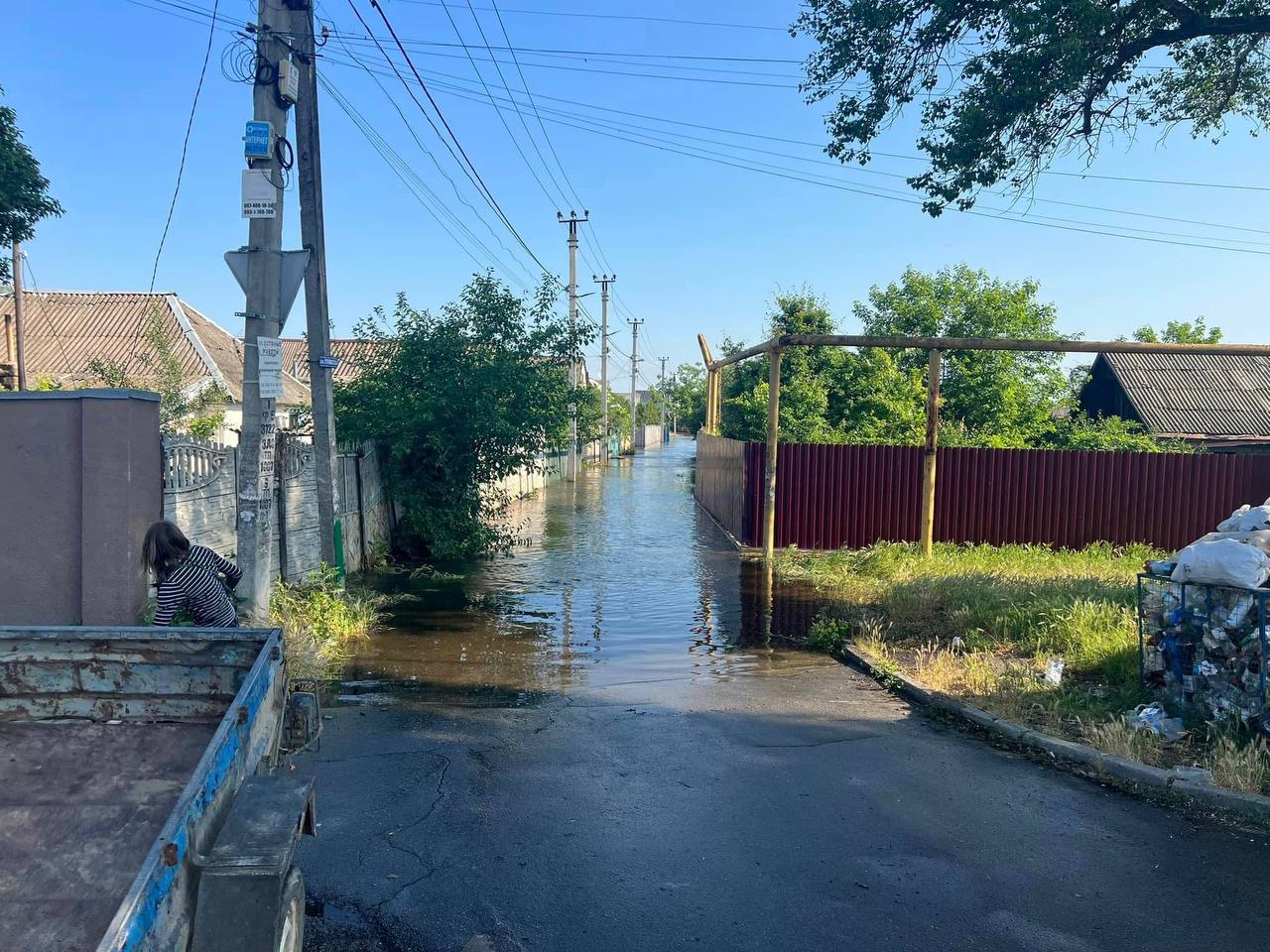UK PM on Kakhovka dam destruction: 'A new low' for Russia if it's responsible.
U.K. Prime Minister Rishi Sunak said[1] on June 7 that U.K. military and intelligence agencies were looking into the destruction of the Kakhovka dam and that it would represent "a new low" for Russian aggression against Ukraine if the Kremlin is responsible for the disaster. "Our military and intelligence agencies are currently looking at it - it's too soon to preempt that and make a definitive judgment," Sunak said, as quoted by Sky News.
"But what I can say is if it's intentional, it would represent, I think, the largest attack on civilian infrastructure in Ukraine since the start of the war, and just demonstrates the new lows that we would have seen from Russian aggression. Attacks on civilian infrastructure are appalling and wrong," Sunak added. A mass humanitarian and ecological disaster unfolded after the Kakhovka dam collapsed around 2:50 a.m. on June 6.
According to the Ukrainian authorities, the dam was blown up by Russian forces to prevent a Ukrainian counter-offensive. Ukrainian officials have voiced their displeasure at those who have avoided unequivocally blaming the attack to Russia. On June 6, Foreign Minister Dmytro Kuleba called out[2] international media that gave the slightest credence to Russian narratives about Ukraine somehow being behind the Kakhovka dam explosion, saying it "puts facts and propaganda on equal footing."
"Ukraine is facing a huge humanitarian and environmental crisis. Ignoring this fact means playing Russia's 'not all obvious' game," Kuleba added.
What are the consequences of the Kakhovka dam's demolition? The destruction of the Kakhovka dam can lead to serious humanitarian, ecological, economic, military, and legal consequences.
The demolition was carried out by Russian forces in southern Ukraine in the early hours of June 6. And it's among the most dramatic violations of the Geneva Conventions in...
 [3]
[3]  Kate Tsurkan
Kate Tsurkan
News editor
Kate Tsurkan is a news editor at the Kyiv Independent. She is a writer, editor, and translator.
Her work has been published in The New Yorker, Vanity Fair, Harpers, The Washington Post, and elsewhere. She is the co-founder of Apofenie Magazine. Originally from the U.S., she resides in Chernivtsi, a city in the west of Ukraine.
References
- ^ said (news.sky.com)
- ^ called out (kyivindependent.com)
- ^ What are the consequences of the Kakhovka dam's demolition?The destruction of the Kakhovka dam can lead to serious humanitarian, ecological, economic, military, and legal consequences.
The demolition was carried out by Russian forces in southern Ukraine in the early hours of June 6.
And it's among the most dramatic violations of the Geneva Conventions in...
(kyivindependent.com)